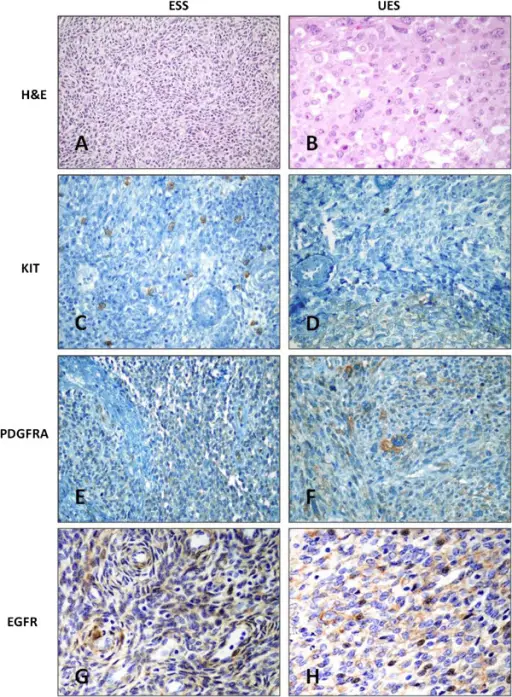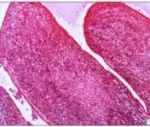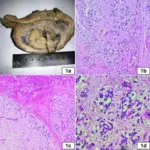Endometrial stromal tumors are very rare mesenchymal malignant tumors in the uterus, resemble endometrial stromal cells of the proliferative endometrium.
What is the Pathology of Endometrial Stromal Tumors?
The pathology of endometrial stromal tumors is:
-Etiology: The cause of endometrial stromal tumors is unknown.
-Genes involved: JAZF1-SUZ12 JJAZ1 genes fusion
-Pathogenesis: The sequence of events that lead to endometrial stromal tumors is stromal proliferation of neoplastic cells.
-Morphology: The morphology associated with endometrial stromal tumors shows stromal atypia.
-Histology: The histology associated with endometrial stromal tumors shows stromal atypia.
How does Endometrial Stromal Tumors Present?
Patients with endometrial stromal tumors typically in females at any age. The median age is 47 years and most commonly in postmenopausal women. The symptoms, features, and clinical findings associated with endometrial stromal tumors include: Abnormal uterine bleeding, Pelvic or abdominal pain, distension and frequent urination.
How is Endometrial Stromal Tumors Diagnosed?
Endometrial stromal tumors is diagnosed by: light microscopy, biopsy and subsequent hysterectomy.
How is Endometrial Stromal Tumors Treated?
Endometrial stromal tumors is treated by: Total abdominal hysterectomy and bilateral salpingo-oophorectomy and debulking of any visible tumor, Radiation or hormonal treatment as adjuvant treatment or for recurrent or metastatic tumor.
What is the Prognosis of Endometrial Stromal Tumors?
The prognosis of endometrial stromal tumors is excellent. The prognosis with no recurrences if completely excised. 5-year survival rate of approximately 60–80% for low grade tumors.



